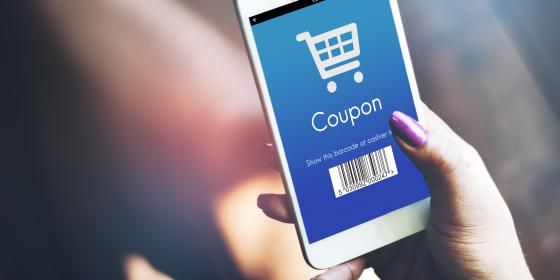As indicated by information from Inmar Intelligence’s “2021 Promotion Industry Trends Analysis and July Shopper Insights Study,” 54% of all customers as of late bought another brand since it was more affordable, and almost 33% of these customers were affected by an advanced E-Coupons. The tech-empowered administration’s organization noticed that these discoveries come when the basic food item industry is seeing cost expands that have customers looking for ways of balancing the hit to their wallets.
Customer reception of burden to-card (advanced coupons) has been ascending starting around 2018, outperforming unsupported supplements (FSIs), or paper coupons, in 2020, Inmar Intelligence found. Through August 2021, advanced coupons have kept on driving in a portion of recovery volume, in spite of FSIs having almost 20x the appropriation volume. In particular, Inmar Intelligence’s investigation discovered that computerized coupon reclamations represented 33% of all coupon recoveries in the primary portion of 2021, while FSIs represented 24%. By and large computerized coupon reclamation volume for the long term to date encountered a 13% year-over-year increment from 2020, uncovering a progressing and progressively solid interest for both the investment funds and accommodation of e-coupons.
While customers’ utilization of advanced motivators is developing, information from Inmar Intelligence showed that these computerized impetuses are extraordinarily impacting buy choices. The information recommended that the present customers are available to attempting new brands, and are regularly convinced to do as such by advanced advancements. In July 2021, the most noteworthy pace of brand preliminary year to date was recorded, with 72% of all customers saying that they made another brand buy. 84% utilizing a coupon for a new in-store buy and 92% utilizing a coupon for a web-based buy said that the coupon changed their buy choice, driving them to purchase more, purchase sooner, or purchase a thing interestingly.
Inmar Intelligence likewise found that practically 70% of unwavering ness individuals said that limits and coupons are vital to them and are the explanation that they join a devotion program, with a larger part (56%) saying that when they don’t utilize coupons, it antagonistically influences their family basic food item spending plan.
Extra discoveries incorporate the accompanying:
- 55% of respondents said that they’re probably going to cut a coupon in case it’s given to them
- 58% said that they by and large clasp coupons at home prior to shopping, and 34% said that they cut while shopping in a store or on the web
- 47% of respondents said that they discover cutting computerized coupons extremely simple
- Practically 30% said that they always remember that they have cut coupons with them, and 20% said that they much of the time neglect
- 34% said that they generally reclaim qualifying computerized offers, while 36% said that they disregard the offers, and 30% said that they experience issues discovering offers that are applicable to them
- 55% said that updates regarding computerized coupons would be exceptionally useful, especially as in-application notices, email updates, or texts
“Customers are constantly searching for worth and investment funds, presently like never before, and as their lives become progressively computerized, they are looking to advanced techniques to convey reserve funds,” noted Spencer Baird, EVP, and president, martech at Winston-Salem, N.C.- based Inmar Intelligence. “As we’ve found in our examination, computerized motivators are driving customer buy choices. Brands and retailers are presently executing plans for Q4, and they need to guarantee that they’ve coordinated advanced motivating forces into their arrangements to meet the deals and portion of the overall industry targets they have before them. The adaptability, focusing on, attribution and speed to market of computerized motivating forces empower brands and retailers to address both the issues of customers just as their own destinations.”


